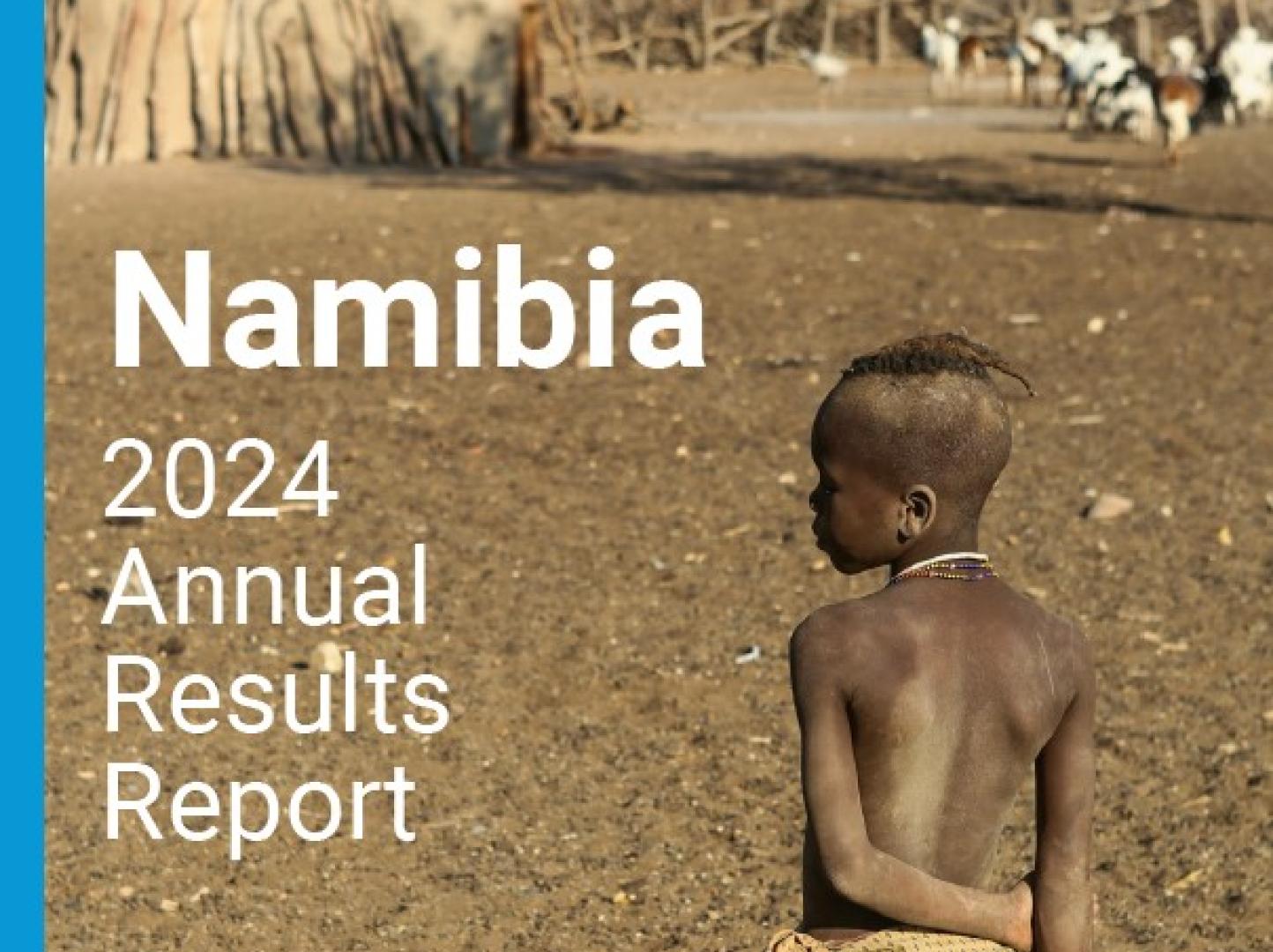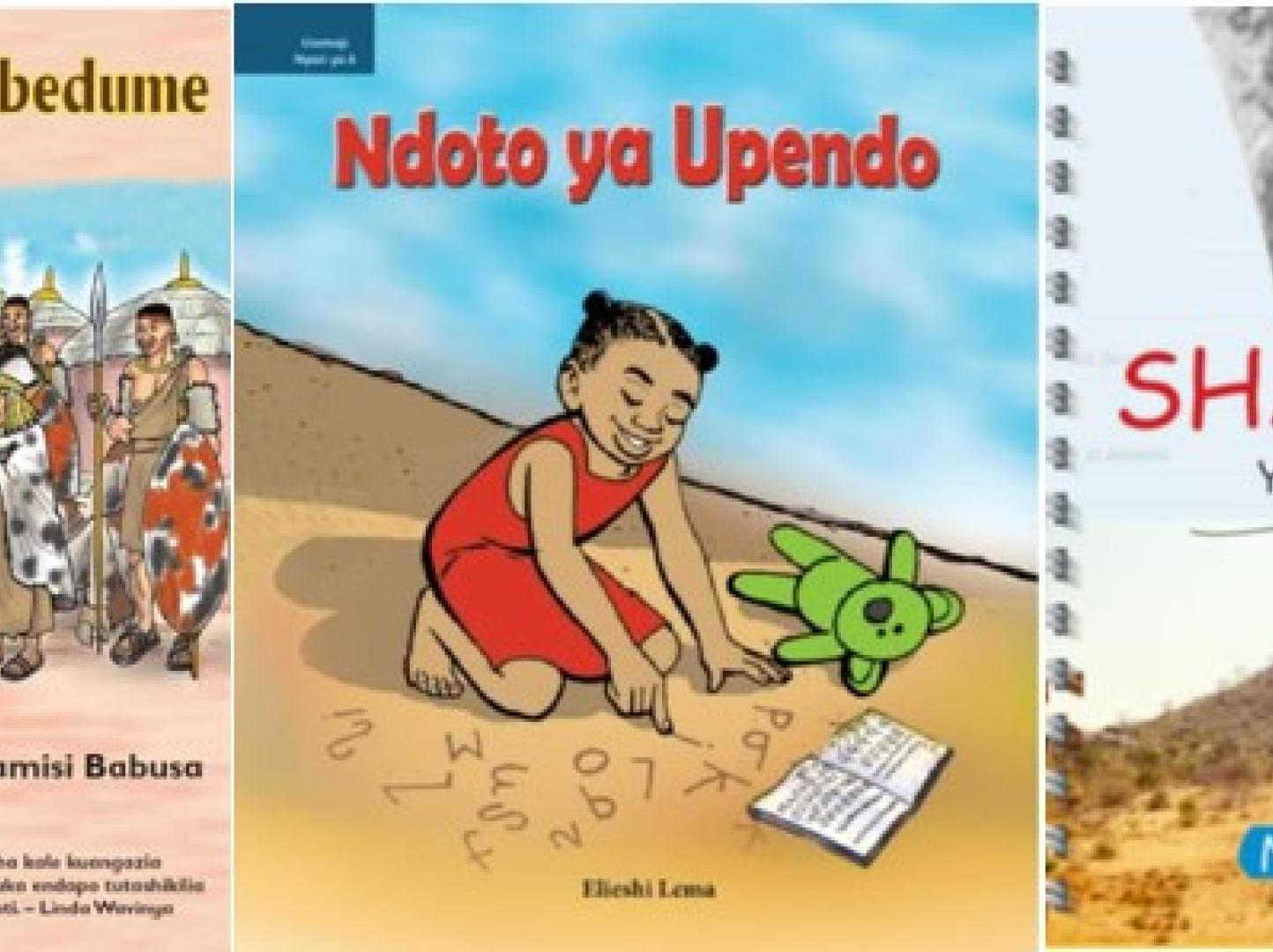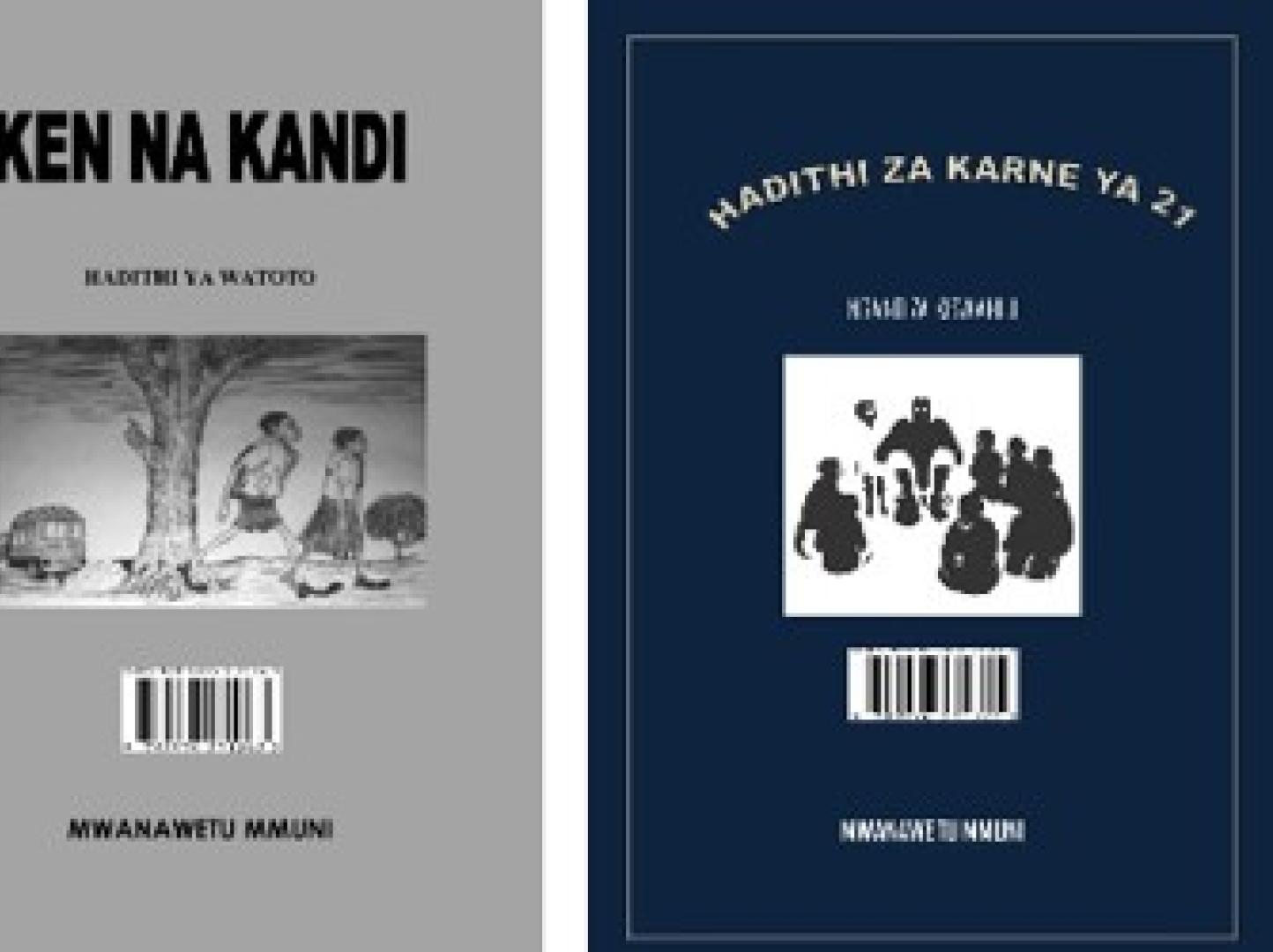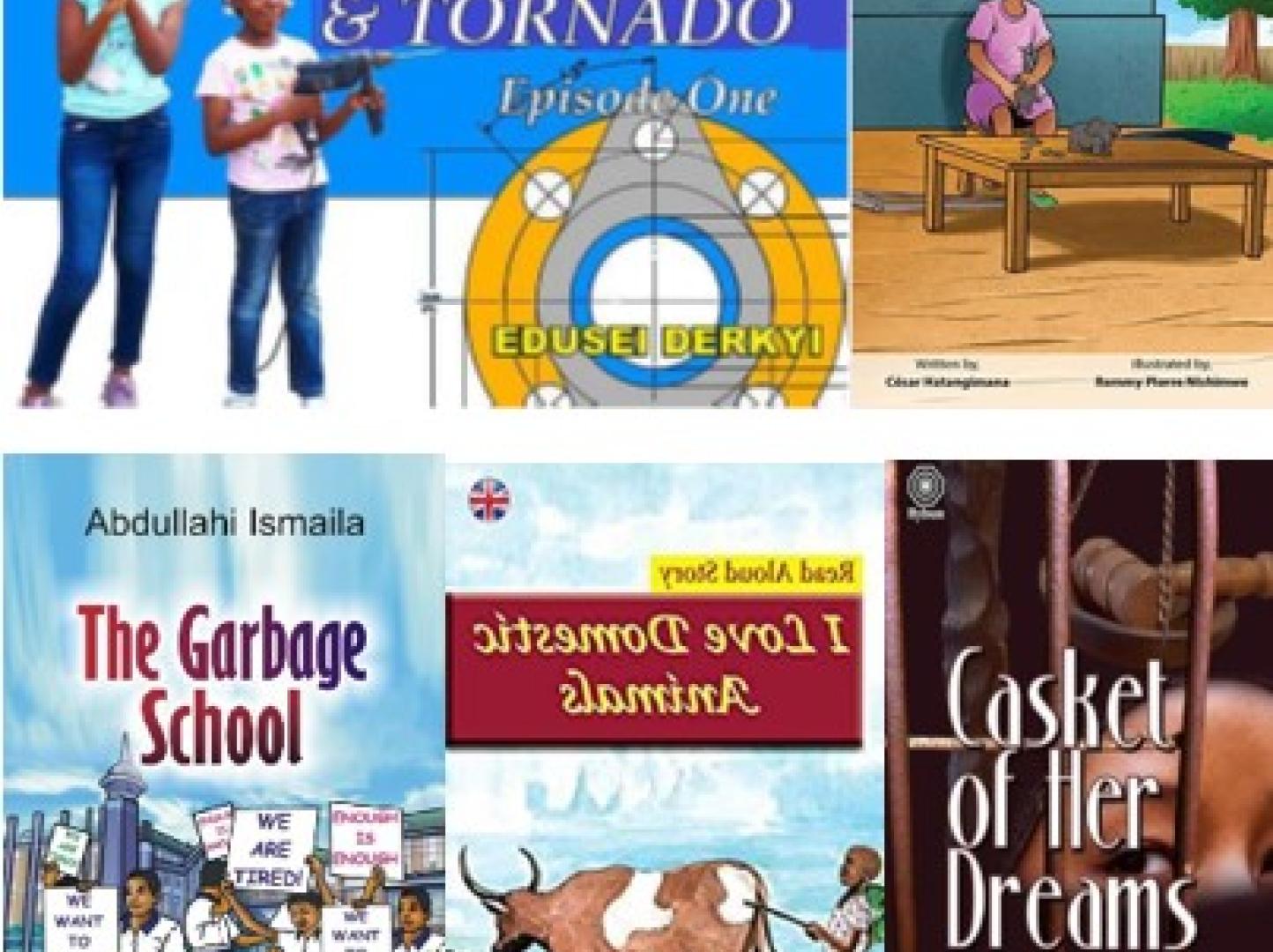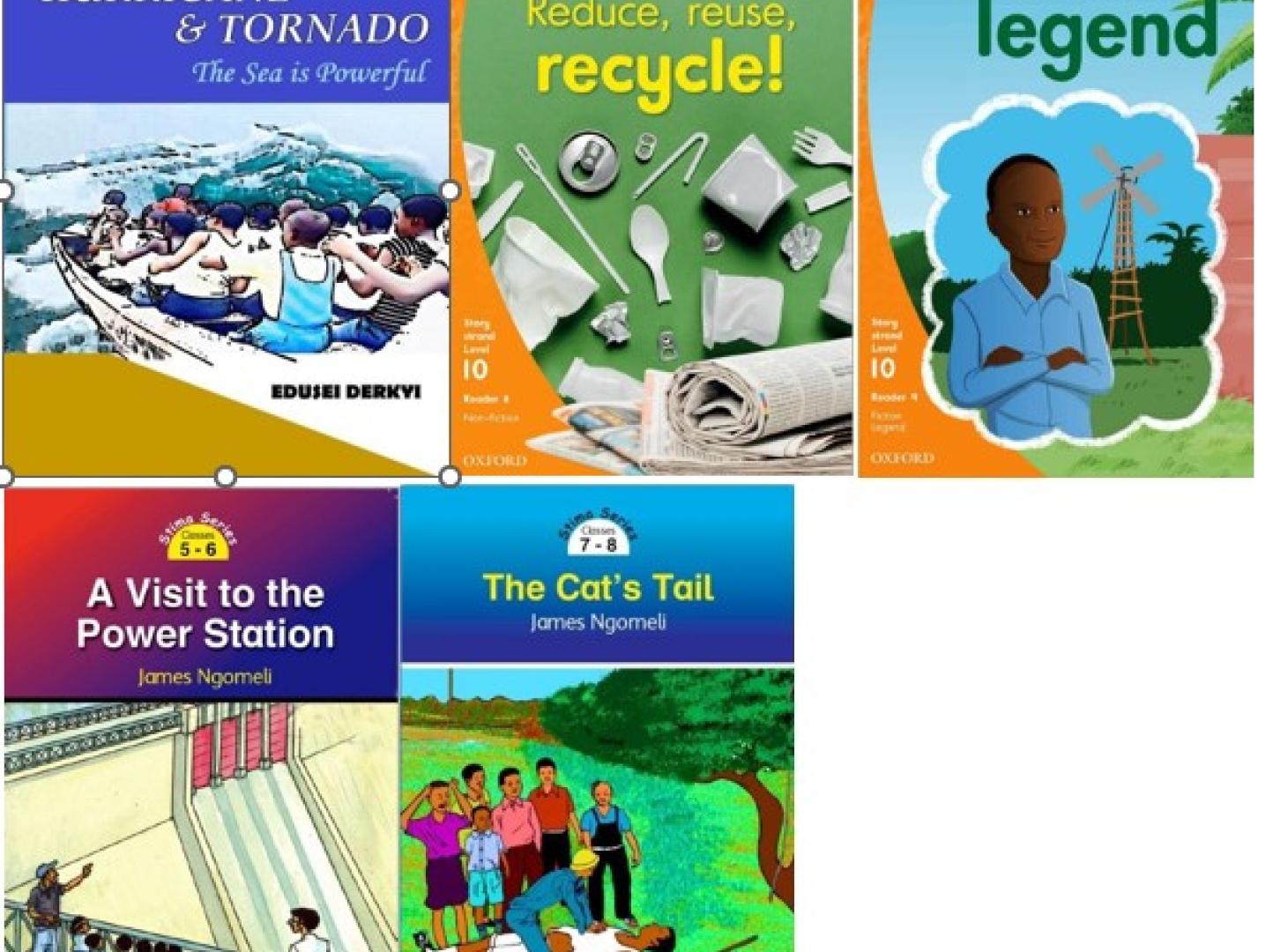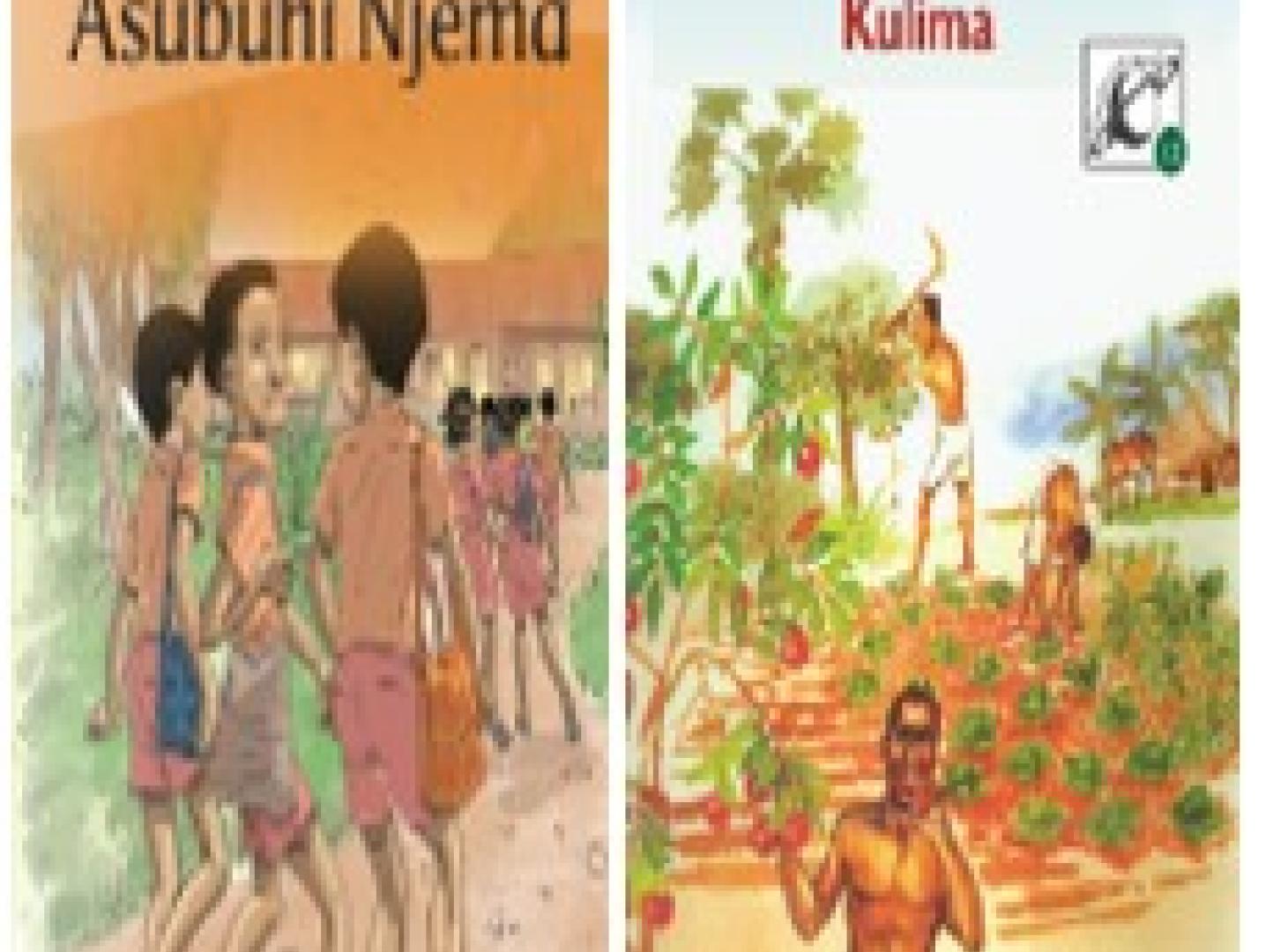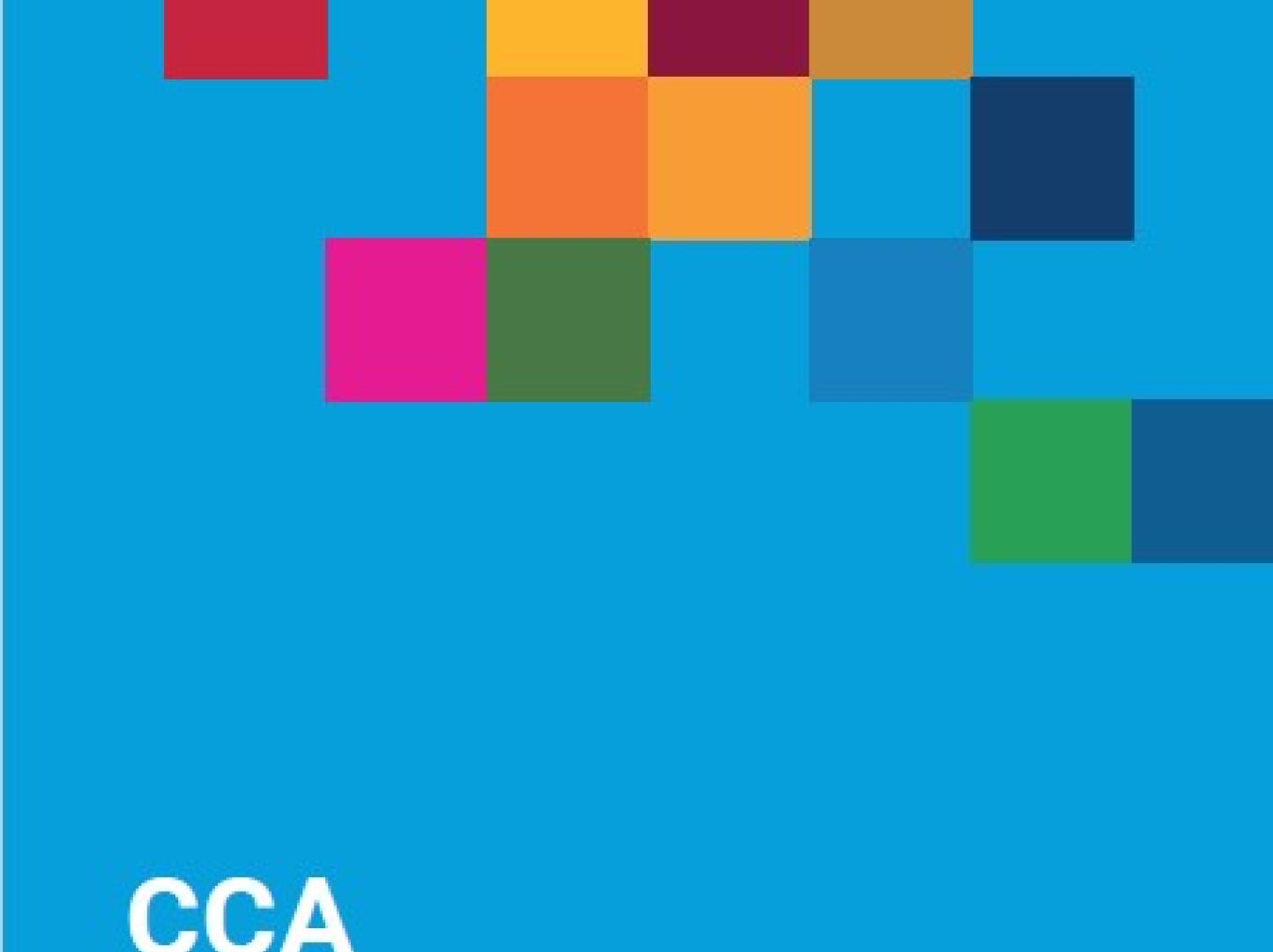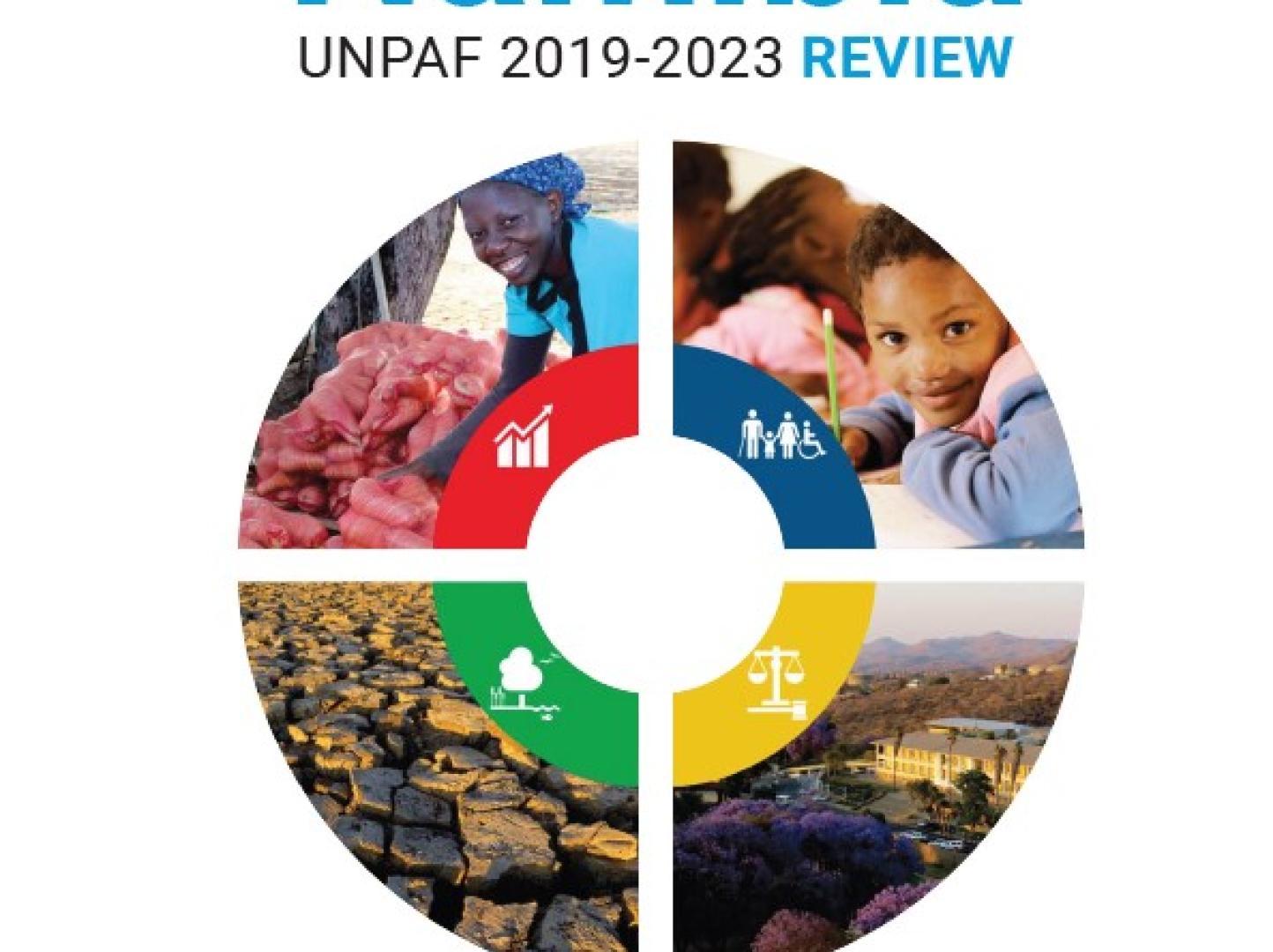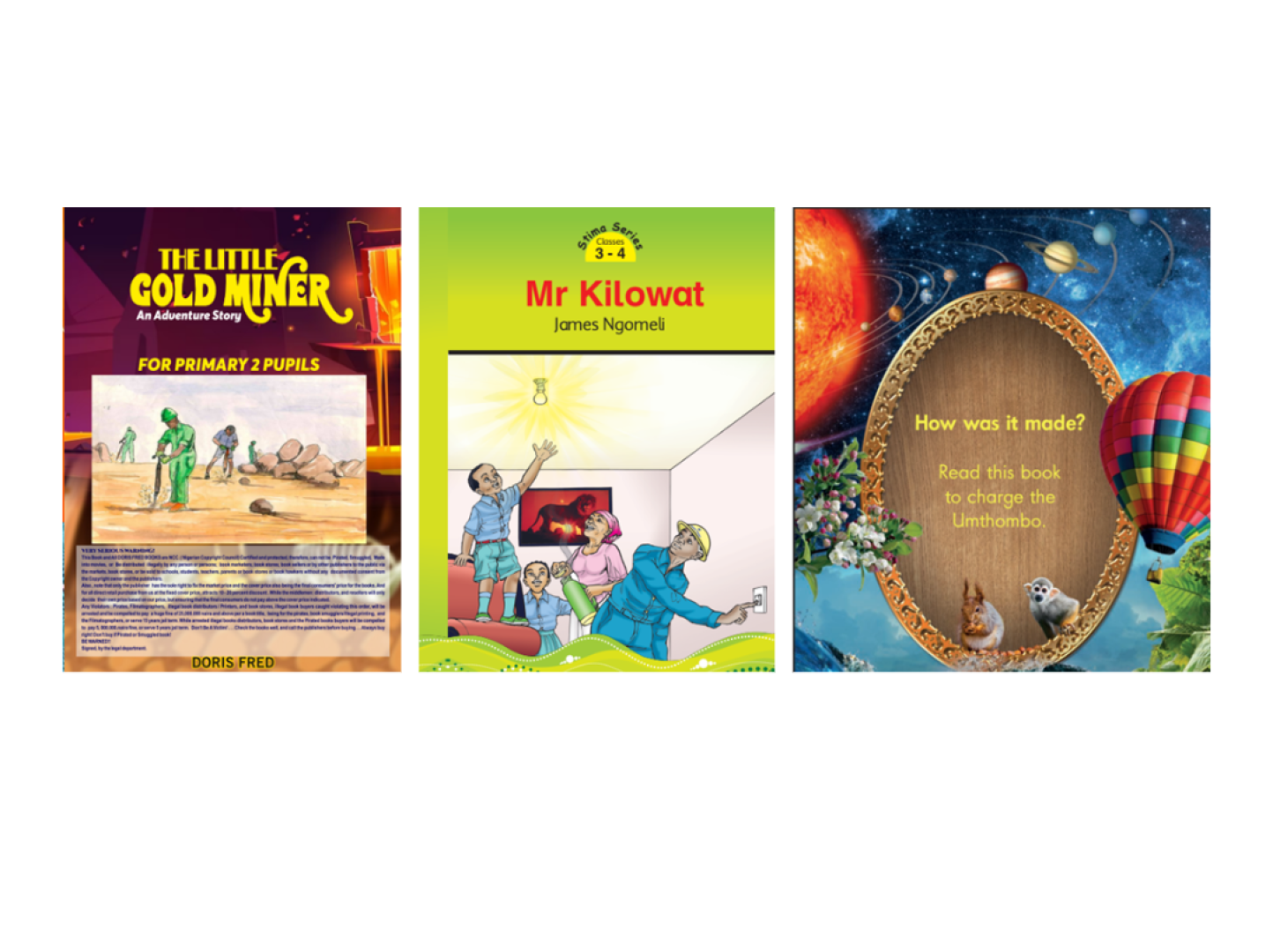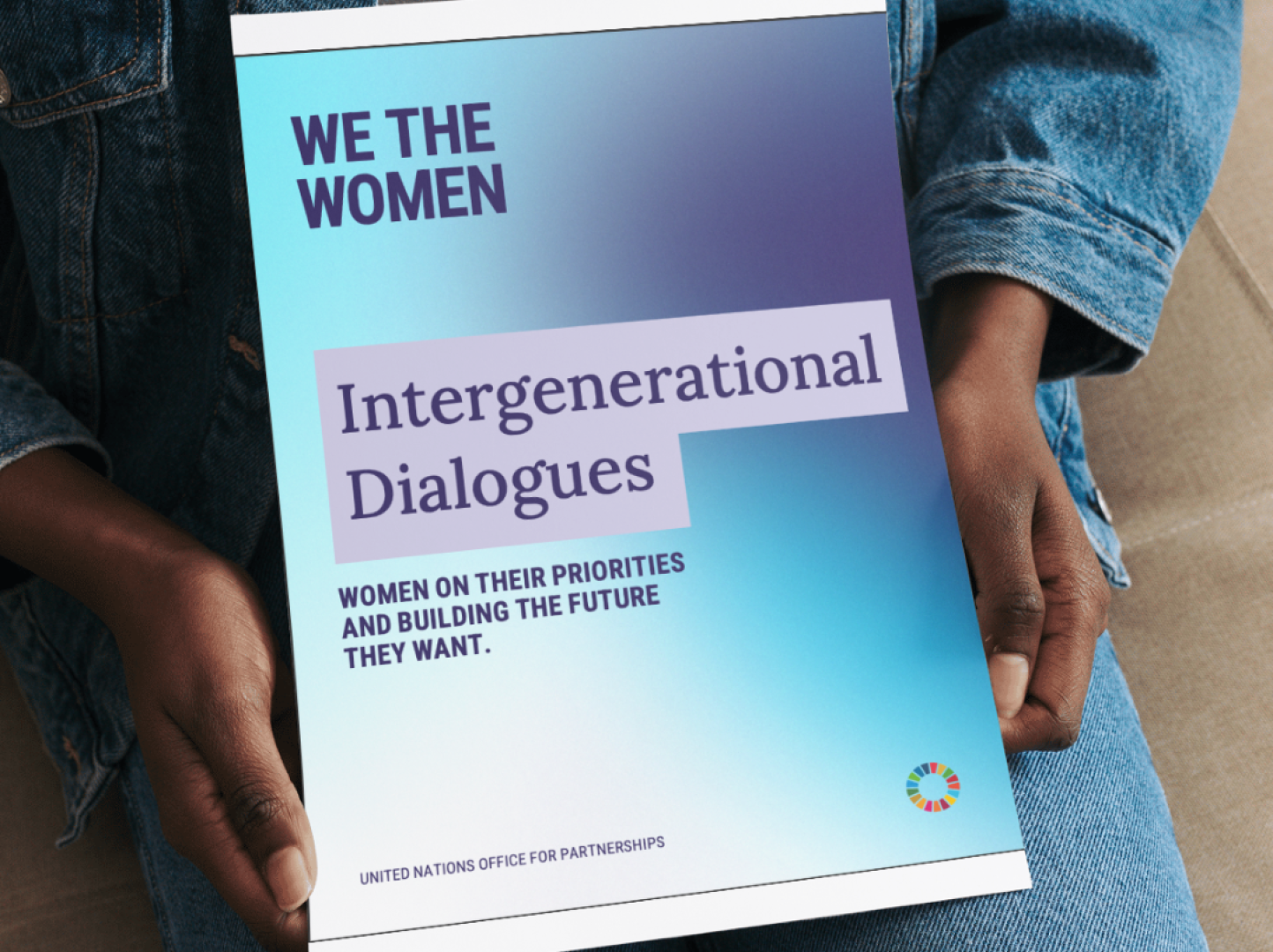Latest
Story
01 July 2025
A Story of Strength and Sight Beyond Vision
Learn more
Story
17 June 2025
Bridging Classrooms and Global Goals: Learners Explore the UN’s Role in Namibia — and Beyond
Learn more
Story
23 May 2025
MTC and United Nations Namibia Sign Groundbreaking Five-Year Partnership to Accelerate Digital Inclusion and Deliver on Development Goals
Learn more
Latest
The Sustainable Development Goals in Namibia
The Sustainable Development Goals are a global call to action to end poverty, protect the earth's environment and climate, and ensure that people everywhere can enjoy peace and prosperity. These are the goals the UN is working on in Namibia.
Story
17 November 2022
FAO supporting Namibia to develop new Comprehensive Conservation Agriculture Programme
The first ever Comprehensive Conservation Agriculture Programme (CCAP 2015-2020) registered commendable progress towards improving food production and incomes for farmers in Namibia. The Framework aimed to increase the application of CA principles and practices among the crop-growing farmers of Namibia.
Godfried Meeja, from Otjozondjupa region says that adopting CA was the best decision he ever made as a farmer as he increased yields and now earns a decent income, while Paulina Aluuma added her voice to the awareness encouraging other farmers to adopt CA as it is an effective means to counter negative climate change effects such as low and variable pattern rainfall experienced in their Oshana region.
“CA has been promoted as an entry point to Climate Smart Agriculture and has the potential to contribute towards mitigation of some of the climate change and food systems challenges in Namibia,” Mildred Kambinda, Deputy Executive Director in the Ministry of Agriculture, Water and Land Reform (MAWLR) noted in the meeting to evaluate the ended CA framework.
Formulating second generation of CA Framework
The Food and Agriculture Organization of the United Nations (FAO) through a 10 countries regional project “Strengthening Coordination, Scaling Up and Governance of Conservation Agriculture in Southern Africa (SUCASA)” is supporting development of the second generation of CCAP in Namibia.
The five-year Programme will inspire Namibia’s farmers towards adopting CA in order to ensure resilience, food security and nutrition as well as environmental protection.
The development of the first generation of the CA framework was also supported by FAO in partnership with the Ministry of Agriculture, Water and Land Reform (MAWLR).
“As the global climate crisis intensifies, more and more countries are beginning to adopt climate-smart, sustainable agriculture to ensure food security to feed millions of vulnerable people", Ferdinard Mwapopi, Assistant FAO Representative (Progammes) in Namibia said during a consultative meeting.
"Namibia still remains a net importer of food items and is thus highly exposed to environmental and economic factors affecting it as well as those prevailing in food exporting countries, and this increases its vulnerability to the shocks", added Mwapopi.
Transitioning to climate-smart agriculture practices
Consultations among key stakeholders are underway from development partners, academia and farmers to guide the design of the new intervention, and also ensure ownership and its successful implementation.
The new CA framework is being designed with the technical support from FAO and will seek to transition Namibian farmers from rain-fed traditional farming practice toward climate-smart agriculture.
Conservation Agriculture adoption and scaling up is highlighted in the 5th National Development Plan for Namibia 2017-2022 and the MAWLR Strategic Plan 2017-2022. The country has a target to have more farmers adopt at least one of the CA practices; minimum tillage, crop rotation and organic soil cover, by 2025 to ensure food and nutrition security.
The urgent need to scale up CA
Agriculture in Namibia is primarily rain-fed with the majority of the population engaged in subsistence farming.
“Despite agriculture being the main source of food for the smallholder farmers, most conventional farming practices have negative impacts on the ecosystems and contribute to environmental degradation, for example loss of soil quality,” Mwapopi noted.
With the country’s vulnerabilities such as prolonged dry spell and floods which at times take place simultaneously, Conservation Agriculture adoption would provide sustainable food production.
The FAO support is aimed at enhancing institutional and individual capacities of researchers, extension officers and farmers to enable the adoption of new agricultural good practices for improved crop production.
The capacities of the MAWLR are being developed to promote CA principles to help farmers increase production and productivity, thus reducing risks and building resilience to climate change.
1 of 5
Story
27 November 2022
Youthconnekt Namibia Launched
OTJIWARONGO, Namibia — The Ministry of Sport, Youth and National Service, in partnership with the United Nations Population Fund (UNFPA) and the United Nations Development Programme (UNDP), officially launched the YouthConnekt Namibia initiative on 21 September 2022.
YouthConnekt Africa is a Pan-African program established by the African Union to co-design and expedite suitable solutions for youth socio-economic development, as well as to support intergovernmental knowledge exchange on policy, initiatives, and collaborations.
Operationalised in 2020, the YouthConnekt Africa hub aims to contribute to the achievement of Africa’s Sustainable Development Goals (SDGs) mandate, the AU 2063 agenda and the AU Youth Charter.
Through national YouthConnekt initiatives, the hub accomplishes its mandate by coordinating a global network to create a continental ecosystem for African youth; sharing experience and knowledge on programme and policy design, youth initiatives and providing a conduit for resources at scale and data on youth empowerment initiatives.
The Deputy Minister of Sport, Youth and National Service, Hon. Emma Kantema-Gaomas said YouthConnekt Namibia aims to involve Namibian youth in the YouthConnekt Africa Hub, where they will be expected to share ideas, submit business initiatives and acquire technical development skills.
“Our mandate as a ministry is focused towards the promotion of youth empowerment initiatives as expounded in our third national youth policy. It is, therefore, our duty to ensure that we join hands with development partners and other progressive organisations in the development of youth,” said Hon. Kantema-Gaomas during the launch.
She added that there is an urgent need for youth participation at the top end of the country’s economy, hence, the government has put together a variety of policy interventions designed to bring youth into the mainstream of the economy in order to improve inclusion and cohesion.
“Africa's most valuable resource is its youth, and Namibia is no exception, with youth constituting the majority of the population,” she stated.
Loide Amkongo, UNFPA Namibia Assistant Representative and Officer in Charge urged youth to read more to keep abreast with developments and opportunities. “Read, Reach and participate,” she advised the youth during a panel discussion on how Namibian youth can prepare themselves to fully benefit from the YouthConnekt.
“Finally Namibia has officially become part of YouthConnect Africa. We have started to connect with youth from all over Namibia and I cannot wait to connect with youth from the rest of the continent. I want to thank our government for this wonderful initiative, bringing youth together for problem-solving, promoting youth engagement, and empowering the youth,” said Valmary Jantjie, a youth from! Kharas region.
Riaan Siyama, a youth from the Zambezi region also looked forward to connecting with fellow youth and hearing their thoughts and ideas, especially on how to end gender-based violence (GBV) in the country. Siyama is a co-founder of Building Every Opportunity for Change, a civil society organisation that works with men to prevent GBV in Zambezi region.
“Without concerted efforts to address GBV and other forms of gender injustices, the lives of women and girls in the country remain at risk."
"I’m very thankful that we have been accorded the opportunity to be part of the YouthConnekt Namibia launch where we can showcase our work as well as collaborate with other youth around the country and make it effective for us to combat these social illnesses in our country,” he added.
The fifth YouthConnekt Africa Summit took place in Kigali, Rwanda in October this year, where hundreds of young people from the member states of YouthConnekt Africa gathered to share experiences, knowledge, and skills. Some of the members of YouthConnekt Namibia attended the summit in Kigali.
1 of 5
Story
14 November 2022
Adolescents and youth with disabilities, and adolescents living with and affected by HIV empowered on HIV and Sexual & Reproductive Health and Rights
UNAIDS Namibia in collaboration with the Namibian National Association of the Deaf (NNAD) and National Federation of People with Disabilities in Namibia (NFPDN) with the support of UNICEF and UNFPA recently facilitated a two-day workshop on HIV and Sexual and Reproductive Health and Rights (SRHR) in Windhoek, as part of the 2gether4SRHR initiative.
The workshop provided a safe platform for adolescents to interact and share key issues, successes and challenges that they face, for enhanced programming to address gaps in the HIV response, and to strengthen linkages between adolescents with disabilities and other adolescents, including those living with and affected by HIV to strengthen inclusion and partnerships.
The COVID-19 pandemic severely disrupted access to life-saving sexual and reproductive and other health services for adolescents, especially those with disabilities and those living and affected by with HIV. The COVID-19 pandemic severely disrupted access to life-saving sexual and reproductive and other health services for adolescents, especially those with disabilities and those living and affected by with HIV.
In her opening remarks, Dr Alti Zwandor, UNAIDS Namibia Country Director, encouraged participants to actively contribute during the workshop and continue engaging in programmes for and with youth and adolescents to end inequalities. “I hope that your views, suggestions, and recommendations from this workshop will inform the outcome document that will be developed to provide guidance on gender-transformative and human rights-based interventions for adolescents with disabilities in Namibia."
" I therefore urge you to be as free, open, and frank as possible,” said Dr Zwandor.
Among other challenges, the lack of sign language interpreters and skills is a big concern in Namibia as interpreters are usually fully booked when needed by the hearing-impaired community. This was also highlighted by the Namibia Planned Parenthooh Association (NAPPA), a youth friendly service provider for sexual and reproductive health (SRH) care and support.
This continues to limit access to health and other social and essential services, leaving people with disabilities behind. “We often get discouraged to seek services from health facilities as there are no sign language interpreters to communicate our needs to healthcare workers and information hardly reaches us," said Martha, an adolescent with hearing impairment. Participants emphasized the need for the inclusion of adolescents with disabilities in the HIV and COVID-19 responses to ensure that people with disabilities access quality and equitable health services.
UNAIDS has long advocated for a three-track approach to advance the inclusion of people with disabilities in the HIV response, being:
Disability-specific activities and mainstreaming disability across all aspects of HIV responses.
Participation and active involvement of people with disabilities in all programme elements.
Disability-inclusive policies, programmes and implementation strategies that ensure appropriate funding and resources.
UNAIDS Namibia calls for all partners to use the social model, which acknowledges that the current inequalities are not due to peoples’ disability or vulnerability, but the inability of society to eliminate barriers challenging persons with disabilities. This will ensure inclusive development and programming for adolescents and youth so that they benefit from available services, and that the social and structural barriers that prevent young people from accessing HIV services are removed.
Speaking on behalf of the NFPDN, Mr. Orben Muluti calls for communities to start practicing equity and not equality.
“Equity will help us move to a better world, where all societal systems recognize the issues of people with disabilities and work collectively with them to mainstream disability in all aspects of life.” said Muluti.
In closing, the NNAD Director, Mr Paul Nanyeni highlighted the limited communication modalities for people with disabilities and emphasised the need to strengthen joint advocacy for the inclusion of sign language as an official language in Namibia.
The workshop was facilitated by various partners including AfriYAN Namibia, Regain Trust, NAPPA, Youth Empowerment Group (YEG), UNFPA, UNICEF and UNAIDS. The outcome document will be shared with all stakeholders for accelerated action for HIV and SRHR programming for adolescents with disabilities.
1 of 5
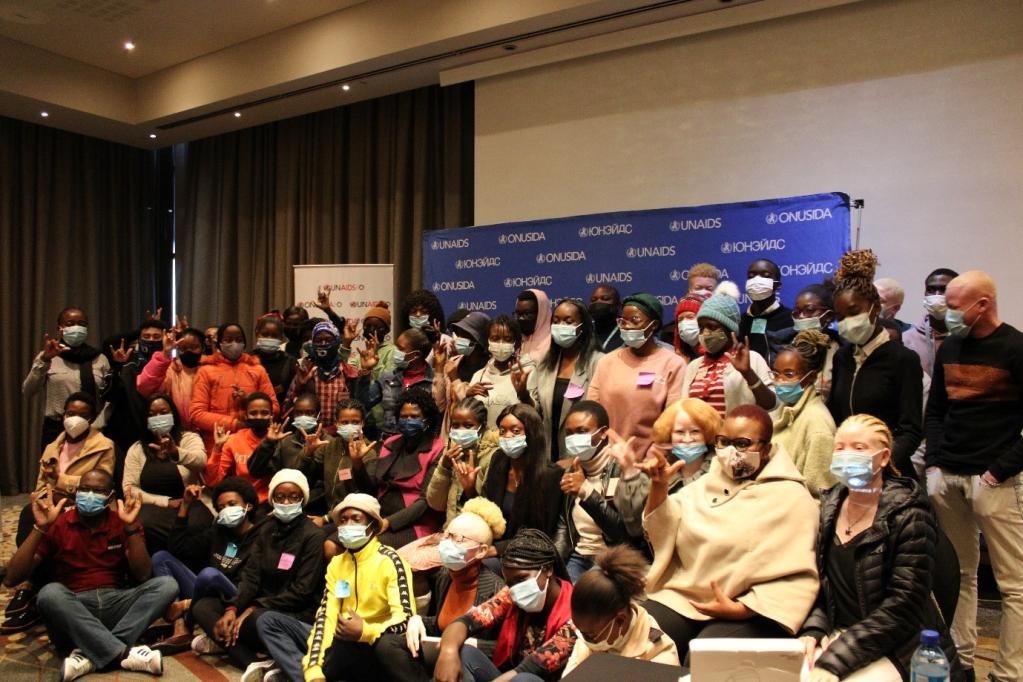
Story
03 December 2022
International Day of Persons with Disabilities Marks 29 Years of Disability Advocacy
It was first launched in 1992 by the United Nations General Assembly Resolution 47/3. The event is in its 29th year of celebration, marking nearly three decades of meaningful change for the community of Persons with Disabilities.
Such days allow us to pose and shine a light on different situations of Persons with different disabilities worldwide and what our contributions as society are towards the inclusion of persons with disabilities in all areas of life.
This day is aimed at celebrating the successes of persons with disabilities and promoting their rights and well-being in all spheres of society and development.
Although we live in a world where the contributions of persons with disabilities are not seen, it is very important to remember that a disability is less than the abilities of someone with a disability.
This year’s theme is “Transformative solutions for Inclusive Development: The Role of Innovation in Fueling an Accessible and Equitable World”
Focusing on three areas namely-
Employment,
Sports and
Innovation by and for persons with disabilities.
Today and every day the UN is working together with people with different disabilities to create a world that is accessible, equal and inclusive for our fellow Brothers and Sisters who are differently abled, but the UN cannot do this alone since disability is a cross-cutting issue.
How can you assist the UN in creating an accessible, equal and inclusive world for persons with disabilities around you?
As we commemorate the 2022 International Day of Persons with Disabilities, we do enjoy the following poem entitled "No One" by Ms Pelgrina Ndumba, a UN Namibia Country Staff Member with a Visual Impairment.
No one
Seeking the acceptance of our communities should not be in vein, because no one will live our lives on our behalf.
A life of societal discrimination and ignorance should be a story of the past, because no one can live our lives on our behalf.
A helping hand to cross the street or to count money should not discourage us from achieving our goals, because no one should live our lives on our behalf
We are valuable agents of change; we are well able and should make a mark on the world because no one will live our lives on our behalf.
We are more than our faces; we are more than what you see. Our potential SHOULD be fully realized because no one will live our lives on our behalf.
Nothing about us will be done without us, because no one will live our lives on our behalf
Daily, we must face the inescapable challenges birthed from stigma and hate.
We are who we are today, because no one will live our lives on our behalf.
Morale
In whatever you do always be yourself, because you are not who you are by mistake and don’t let anything or anybody put you down, because you are able.
1 of 5
Story
15 November 2022
Towards an Early Warning System for Harmful Algal Blooms in Namibia
IOC-UNESCO and Namibia’s Ministry of Fisheries and Marine Resources organized major consultation to assess the specific needs and requirements for establishing an early warning system for harmful algal blooms in the Southern African country.
About 300 hundred species of microalgae are reported at times to form mass occurrences, so-called algal blooms. Nearly one-fourth of these species are known to produce toxins harmful to nature and to human beings, and the scientific community refers to these algal events as ‘Harmful Algal Blooms’ (HAB).
Proliferations of microalgae in marine or brackish waters can cause massive fish kills, contaminate seafood with toxins, and alter ecosystems in ways that humans perceive as harmful.
The impact of harmful microalgae is particularly evident when marine food resources (e.g. fisheries and aquaculture) are affected. Even though not all species are visibly affected by harmful algal blooms – such as shellfish and finfish –, they accumulate the toxins in their organs and subsequently transmit them to humans through consumption, leading to serious health threats.
“In the interest of food safety for the end consumer, an early warning system for HABs will serve as a food safety intervention tool to identify potential risks required to be managed; to maintain consumer and customer confidence; and to expand national, regional and international trade through the promotion of a safe seafood commodity.” - Heidi Skrypzeck, the Ministry of Fisheries and Marine Resources in Namibia
Monitoring of harmful algal blooms is essential in providing forecasts and early warnings for a potential HAB event, enabling regional authorities, industry, or individuals to take actions to mitigate public health, environmental, or economic risks and impacts.
The 5-6 October workshop gathered 32 participants from government ministries, the private sector, academic institutions, and official laboratories to define the early warning system requirements for Namibia, review current capacities and resources in place, and outline missing knowledge and data gaps.
As a result of collaboration between the Government of Namibia, UNESCO’s Intergovernmental Oceanographic Commission (IOC-UNESCO) and UNESCO’s Windhoek Office, the workshop marked the starting point of the development of an early warning system for HABs in Namibia combining monitoring with a mitigation and adaptation strategy.
“Through its Intergovernmental Oceanographic Commission, UNESCO strives to assist Member States in managing and mitigating the impacts of harmful algae, essential for a productive and sustainable seafood industry.” - Henrik Enevoldsen, Head of Ocean Science at IOC-UNESCO
The workshop helped national stakeholders identify and share the main causes and effects of harmful algal blooms in Namibia, including mortalities, human food poisonings, ocean oxygen depletion, and the associated economic and ecological impacts – in particular on the export of shellfish products.
Participants identified an urgent need to establish a rapid monitoring and regulatory framework to ensure the protection of human health and safe seafood trade from the regular occurrence of harmful algae in the country.
“Engaging from the beginning with the different stakeholders is crucial to ensure that the early warning system being developed will eventually effectively meet their specific needs.” - Marie-Yasmine Dechraoui Bottein, invited expert from the University of Côte d’Azur
1 of 5
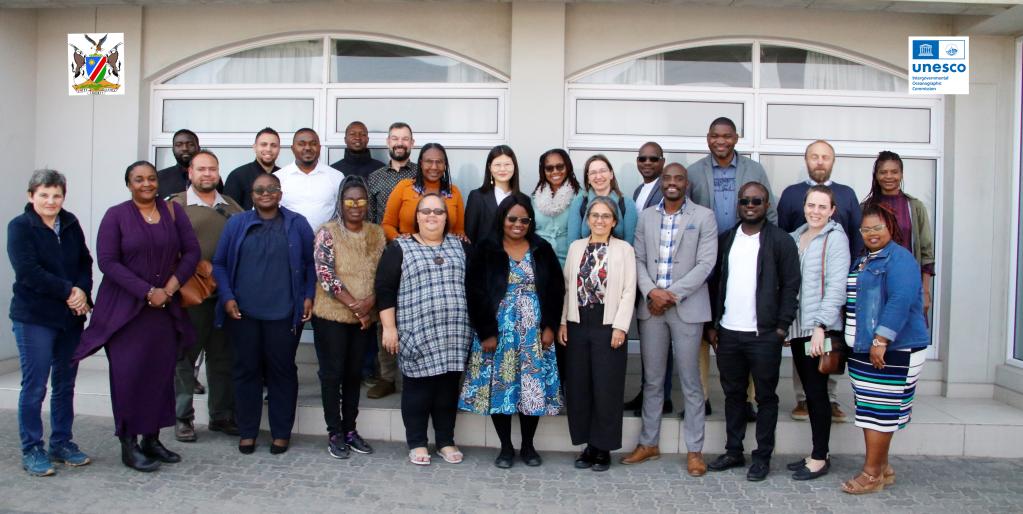
Story
01 July 2025
A Story of Strength and Sight Beyond Vision
She carried years of stigma, isolation, and the quiet pain of being misunderstood. Growing up in Kamanjab, a small town in Namibia’s Kunene Region, Patience was often teased for her low vision. "People made me feel different," she recalls. "They didn’t see what I could do, only what I couldn’t".But everything changed when she walked through the doors of NFVI. "Being here did wonders for me, really," Patience says with a smile. "For the first time, I feel like I belong". She shared, "Back home, I was often teased and stigmatized because of my low vision in my right eye. People made me feel different. But here, I’m surrounded by others who understand—people who share the same struggles. It feels like I finally belong".NFVI is more than a Centre; it’s a community of shared experiences, support, and resilience. It's a launchpad for dignity, independence, and leadership. Its work aligns closely with the outcomes articulated in the United Nations Sustainable Development Cooperation Framework (UNSDCF) 2025–2029, which prioritizes leaving no one behind and ensuring all Namibians have equal opportunities. Patience’s testimony reflects the emotional power of inclusion—not only through skills development but also through belonging and dignity. They listened to stories like Patience’s, saw the impact of assistive technologies, and experienced firsthand the transformation they enabled, reaffirming their commitment to inclusive development under the UNSDCF 2025–2029. As Director Moses Nghipandulwa put it, "We teach, we empower, we advocate. We are not just beneficiaries—we are builders of a more inclusive Namibia".In a world that often overlooks those with disabilities, NFVI is a reminder that inclusion is not charity, it’s justice. And Patience? She’s not just learning to live with low vision. She’s learning to lead.
1 of 5
Story
17 June 2025
Bridging Classrooms and Global Goals: Learners Explore the UN’s Role in Namibia — and Beyond
In an inspiring initiative to connect Namibian youth with global issues, United Nations Namibia opened its doors for an "eye-opening, multi-site educational journey" facilitated by Wilderness Safaris for 23 learners and three teachers from eight high schools, joined by a Namibia University of Science and Technology (NUST) student. This excursion, part of the UN4U School Visit Programme, aimed to deepen their understanding of the United Nations, its 17 Sustainable Development Goals (SDGs), the Pact of the Future, and Namibia's development path, as outlined in the UN Sustainable Development Cooperation Framework (UNSDCF) 2025–2029. The journey began at the United Nations House in Windhoek. The students engaged in interactive presentations that covered the UN's history and its mandate in Namibia, focusing on critical areas such as peacebuilding, human rights, climate action, gender equality, and youth empowerment. Their active participation was evident through their insightful questions, such as "Is what we Google about the UN true?", demonstrating a strong desire to fact-check and grasp global cooperation from a local perspective. One learner reflected, "Now we understand that the UN works in our communities—on the ground—not just from its offices", highlighting a shift in their perception of the UN's tangible impact.A significant part of the visit involved engaging with United Nations Resident Coordinator Ms. Hopolang Phororo. She welcomed the group, stressing youth participation in shaping both the UNSDCF and the Pact of the Future. Ms. Phororo shared, "I was so privileged to spend time with the learners and moved by the profound insights of one of the male learner, who said the cause of GBV is absent fathers and when I asked what could be done, he proposed training or mentoring programmes for boys and men." She also stated, "Our agencies work across Namibia—supporting youth, protecting the environment, and working side-by-side with government and communities. You are part of this journey". Ms. Phororo connected the UNSDCF's four pillars—Governance, Economic transformation, Sustainable development, and Community resilience—to the Pact’s vision for a more equitable, sustainable, and inclusive global system by 2030 and beyond. To illustrate the interconnectedness of the SDGs, the learners participated in the "Swift 30 game," an educational simulation where teams solve development challenges within 30 seconds. This hands-on activity sparked intense discussions, with one team reflecting, "You can’t end hunger (SDG 2) without climate action (SDG 13) and quality education (SDG 4). Drought affects crops, and learners missing school affects everything". This demonstrated their deep understanding of the complex nature of global challenges. The excursion proved to be more than just an informational session; it ignited future aspirations among the students, transforming abstract goals into tangible career pathways in diplomacy, development, science, and conservation. As one student enthusiastically declared, "One of us might work at the UN one day to change things", underscoring the transformative power of such direct exposure. The participating schools, including Michelle McLean Primary, Westmond High, Centaurus High, Rocky Crest High, WJD Cloete Combined, NAMCOL, Concordia High, and Academia High, have committed to nurturing young individuals to become knowledgeable and active contributors to Namibia's future. The learners departed with not only newfound knowledge but also a broadened perspective and a personal investment in advancing Namibia’s development and the global Pact of the Future.
1 of 5
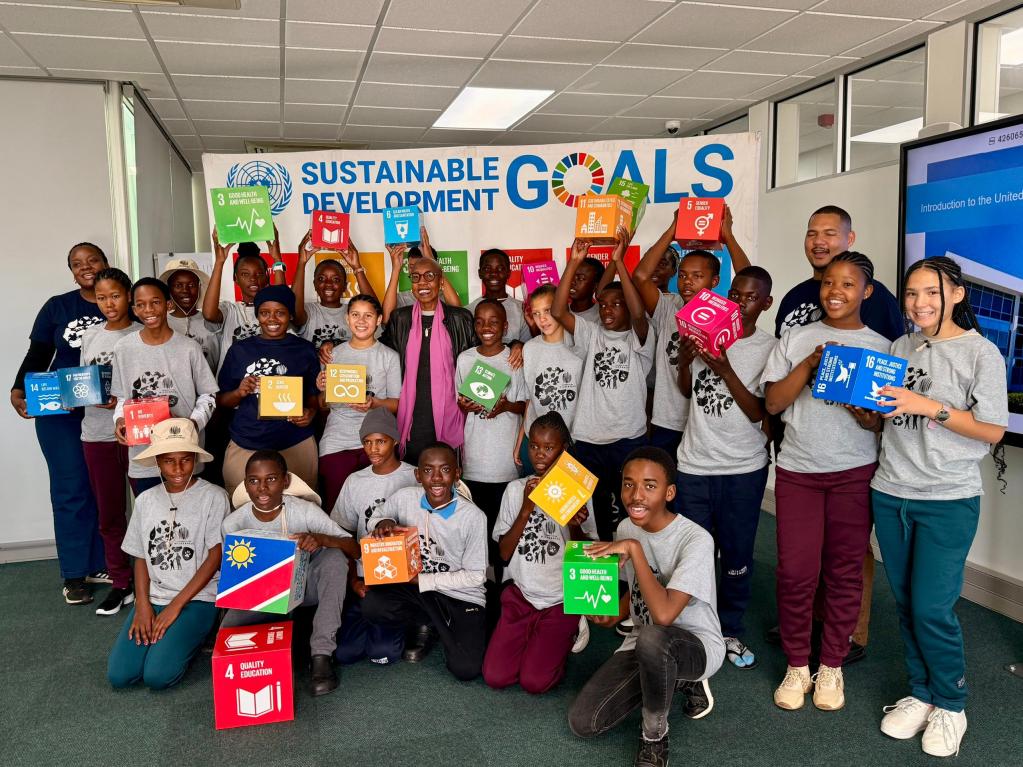
Story
23 May 2025
MTC and United Nations Namibia Sign Groundbreaking Five-Year Partnership to Accelerate Digital Inclusion and Deliver on Development Goals
Windhoek, Namibia – 23 May 2025 — Namibia’s leading telecommunications company, Mobile Telecommunications (MTC) Limited, and the United Nations (UN) in Namibia signed a landmark five-year partnership to fast-track inclusive digital transformation and advance the country’s national development agenda.The signing ceremony, held in Windhoek, brought together high-level dignitaries including the Director General of the National Planning Commission (NPC), Dr. Kaire Mbuende the Minister of Information and Communication Technology (MICT), Honourable Emma Theophilus; and representatives from key ministries, UN agencies, and MTC leadership. The agreement is fully aligned with Namibia’s national priorities, as articulated in Vision 2030, the Sixth National Development Plan (NDP6), and the United Nations Sustainable Development Cooperation Framework (UNSDCF) for 2025 to 2029. “This partnership is about transforming lives, not just through technology, but through inclusion, innovation and shared purpose,” said Hopolang Phororo, United Nations Resident Coordinator in Namibia. “Namibia helped shape the global Digital Compact through the Pact for the Future. Today, we are translating that global leadership into meaningful national action.”The Minister of Information and Communication Technology, Honourable Emma Theofelus, emphasized the importance of a people-centered approach to digital transformation, stating, “Digital transformation must be human-centered and aimed at uplifting all communities. We must ensure that no one is left behind as we advance towards our development goals” Digital Innovation for National ImpactThe partnership focuses on four key development areas:Human development and youth empowerment, including a national internship programme to link young graduates with real-world work experience;Access to public services, through digital identity and electronic Know Your Customer systems to help people, especially those in rural communities, access critical services;Economic resilience and financial inclusion, with mobile tools to expand digital literacy and financial empowerment for the unbanked;Sustainable and smart growth, using mobile connectivity and smart agriculture solutions to support health, education, and climate innovation. Putting People at the CentreDuring the launch, illustrative stories were shared to highlight the real-world challenges that the partnership seeks to address. These stories—while fictional—were developed during consultations with civil society organizations and the private sector and reflect the lived realities of many Namibians.
For example, Maggie, a young woman with disabilities, struggles to find employment. Lukas, a father in Windhoek, faces long waiting times and poor communication from health facilities. Maria, a rural schoolgirl, walks 10 kilometres to a school without digital resources, dreaming of becoming Namibia’s president. Anna, a small-scale farmer, cannot access farming information or markets due to poor connectivity.
“These stories are not isolated. They mirror the daily experiences of thousands of Namibians,” said Dr. Licky Erastus, Managing Director of Mobile Telecommunications Limited. “As a digital enabler, we must ensure that innovation works for everyone, not just for some.”Dr. Kaire Mbuende, Director General of the National Planning Commission, welcomed the partnership, calling it “an essential lever in achieving inclusive national development and enabling more Namibians to access opportunity, services, and prosperity through innovation.”A United Nations–Wide CommitmentEleven United Nations entities are involved in this partnership, marking a comprehensive and coordinated approach to digital development. These efforts will complement existing United Nations-supported programmes in education, health, environment, and food systems, while unlocking new opportunities for entrepreneurship, service delivery, and youth participation.“In an era of shrinking development aid, we must think differently,” said Phororo. “This is not about Corporate Social Responsibility. It’s about co-creating sustainable solutions that deliver real results — for the people, with the people.”As Namibia continues to lead on the global stage through the Digital Compact and its role in the Pact for the Future, this partnership between the United Nations and Mobile Telecommunications Limited stands as a bold commitment of what it means to turn shared ambition into transformative national impact.
For example, Maggie, a young woman with disabilities, struggles to find employment. Lukas, a father in Windhoek, faces long waiting times and poor communication from health facilities. Maria, a rural schoolgirl, walks 10 kilometres to a school without digital resources, dreaming of becoming Namibia’s president. Anna, a small-scale farmer, cannot access farming information or markets due to poor connectivity.
“These stories are not isolated. They mirror the daily experiences of thousands of Namibians,” said Dr. Licky Erastus, Managing Director of Mobile Telecommunications Limited. “As a digital enabler, we must ensure that innovation works for everyone, not just for some.”Dr. Kaire Mbuende, Director General of the National Planning Commission, welcomed the partnership, calling it “an essential lever in achieving inclusive national development and enabling more Namibians to access opportunity, services, and prosperity through innovation.”A United Nations–Wide CommitmentEleven United Nations entities are involved in this partnership, marking a comprehensive and coordinated approach to digital development. These efforts will complement existing United Nations-supported programmes in education, health, environment, and food systems, while unlocking new opportunities for entrepreneurship, service delivery, and youth participation.“In an era of shrinking development aid, we must think differently,” said Phororo. “This is not about Corporate Social Responsibility. It’s about co-creating sustainable solutions that deliver real results — for the people, with the people.”As Namibia continues to lead on the global stage through the Digital Compact and its role in the Pact for the Future, this partnership between the United Nations and Mobile Telecommunications Limited stands as a bold commitment of what it means to turn shared ambition into transformative national impact.
1 of 5
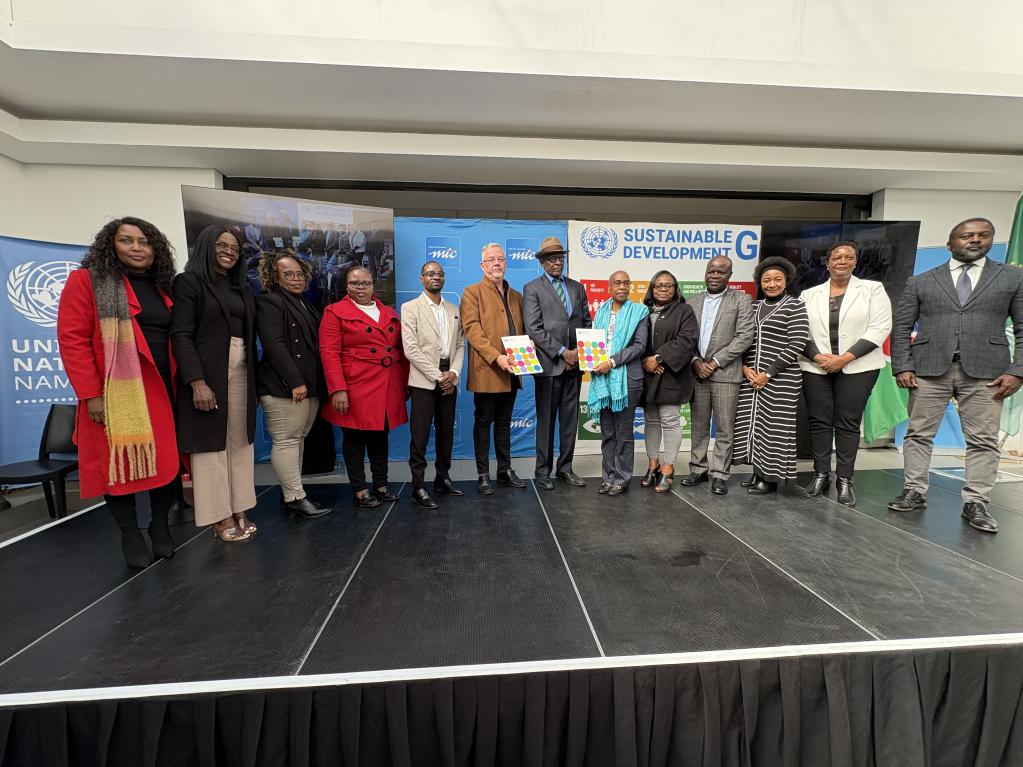
Story
14 May 2025
A grandmother’s battle to feed her family in Namibia
Home to approximately six hundred residents, the farm, like many others scattered across Namibia’s Kunene Region, has withstood the worst of the El Niño-induced drought. Here, survival was not just a daily struggle, but a battle to preserve dignity and hope.Taimi Iiyambo, 59, has lived on this stretch of land for more than two decades. She has endured droughts over the years but describes the recent drought as the most punishing she has ever faced.“There’s a borehole on the farm,” she explains, “but the water level dropped quickly so my food garden died.”The lack of water not only devastated her crops but forced her to make the heart-wrenching decision of selling almost all her goats to buy cattle feed. Goats are often among the first livestock to be sold during a drought as they make the least contribution to farm production. “I decided to auction most of the goats off before they died of thirst and hunger,” she recalls. “Even though I received a reduced price for them, it helped save my cattle.” Taimi’s experience is not unique. Across the Kunene and Ohangwena regions, families watched as their livelihoods disappeared and their fields turned to dust. An estimated 1.4 million Namibians, 48% of the population, faced acute food insecurity between July and September 2024, due to the ongoing drought.Taimi shares her home with her visually impaired son and her five grandchildren. Like many in the region, her family received drought relief support from the Office of the Prime Minister. They also rely on her son’s monthly disability grant, a modest yet crucial income that helps them afford essential household items.“I did everything in my power to ensure my grandchildren are fed,” says Taimi. “We received mahangu (pearl millet) from my family in the north, maize meal from the government, and the grant helped us buy more food when we ran out.”In support of the governments national drought relief efforts, the World Food Programme (WFP) launched a Commodity Voucher Programme in November 2024, made possible by a generous contribution of US$ 500,000 (N$9.3 million), from the Government of Japan.Over a three-month period, the initiative provided timely assistance to 27,000 vulnerable people, contributing to sustainable recovery and resilience. For Taimi and her grandchildren, the vouchers, redeemed at local retails provided food items such as cooking oil, maize meal, canned fish, and instant porridge.The WFP initiative helped stretch scarce resources, decreasing the number of families resorting to extreme coping mechanisms like selling all livestock, reducing, or skipping meals and selling assets to survive.Despite ongoing climate related hardship, Taimi remains hopeful. Now that the drought has passed, she has revived her food garden. The seeds have been planted and today, her cabbage, carrots, and chillies are providing nutritious food for her family whilst excess produce is securing an additional income at market.“I don’t know what tomorrow holds,” she says, gazing over her yard, “but today, my grandchildren are fed. And for that, I am thankful.”Read more about WFP’s work in Namibia on www.wfp.org
1 of 5
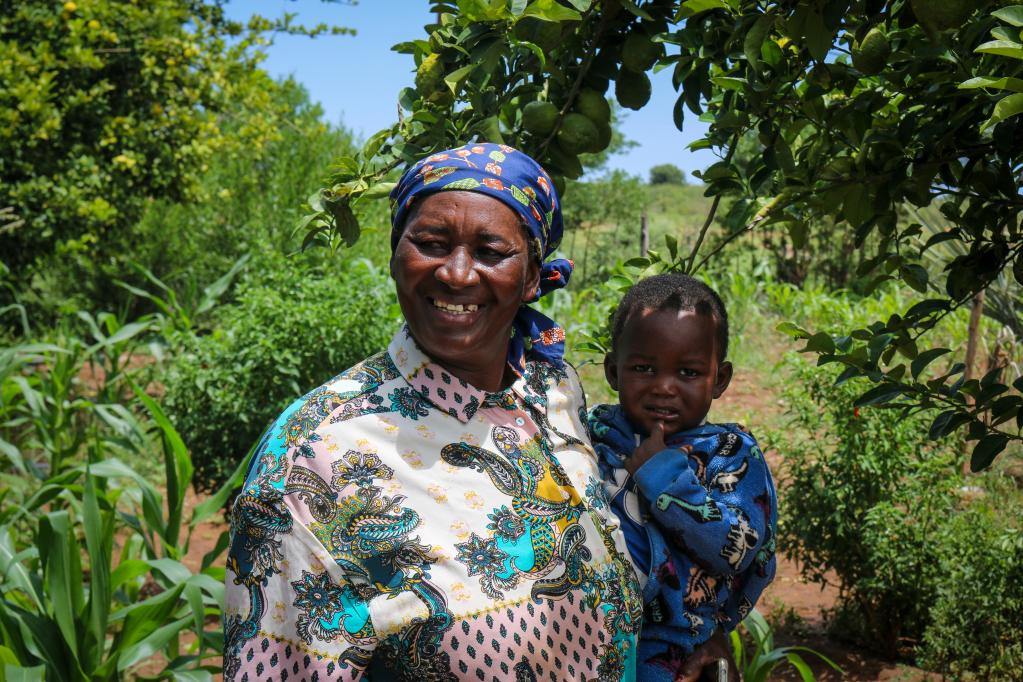
Story
14 May 2025
A Lifeline in the Kavango: Maria’s Path to Resilience through WFP assistance
At an age when most would seek rest, the 61-year-old battles daily to provide for her family. Her story is one of hardship, but also of hope, thanks to the World Food Programme’s (WFP) commodity voucher programme, funded by the United Nations Central Emergency Response Fund (UN-CERF). For years, the El Nino induced drought has ravaged Maria’s village of Mupini 2, leaving the land barren and the people desperate for food. “It has been very, very hard,” Maria recalls. “To survive, I had to go to the river to fish, sell what I could, and use the little money to buy maize meal. That’s all we had to eat.” Her days were a relentless cycle of fishing, trading, and struggling to stretch her earnings to feed her five grandchildren. With about only N$20 (around USD1) daily from selling fish, she can barely afford the basics. “Sometimes, I had to exchange fish directly for maize meal. There was no extra money for anything else,” she explains.The drought relief aid distributed by the government through the Office of the Prime Minister offered some relief “We received 20 kg of maize meal and cooking oil, but it couldn’t feed the whole family” Maria says. Maria’s struggles extended beyond food. Like many in the village, the lack of resources meant her grandchildren couldn’t attend school. “We couldn’t afford uniforms or stationery,” she explains. “The whole village has suffered.” Her grandchildren, who stand quietly nearby, are a constant reminder of her responsibilities. Amidst these challenges, the WFP’s commodity voucher programme has emerged as a beacon of hope. The vouchers, which can be redeemed at local retailers for food, have brought a measure of relief to Maria and her family. “This food has helped us a lot,” she says, her eyes lighting up. “It has fed the family and contributed to our lives. Whatever little we got, has added to what we have.”With support from UN-CERF, WFP is working with the Government of Namibia to address the impact of the drought in Kavango East, Kavango West, and Omaheke regions. This collaborative effort targets populations facing high levels of food insecurity, particularly those classified as IPC Phase 4 (Emergency) and children at risk of malnutrition.Through this intervention, WFP is reaching 39,996 people with commodity food vouchers, providing families with immediate access to essential food while also supporting local markets. Additionally, WFP is implementing a Complementary Wet Feeding Programme, which offers hot, nutritious meals to 25,000 children aged 6 months to 9 years through community-based soup kitchens. This initiative focuses on preventing malnutrition and protecting children’s health and development during this critical period.For Maria, this programme is more than just food—it’s a lifeline. It means her grandchildren can eat, and she can focus on rebuilding their lives. “We have been through so much,” she says. “But with this help, I feel there is hope.”Maria’s story is a poignant reminder of the resilience of the human spirit and the transformative power of humanitarian aid. In the face of relentless drought and climatic challenges, the UN-CERF intervention has given her a chance to dream of a better future—one where her grandchildren can thrive, and the weight of survival is a little lighter.
1 of 5
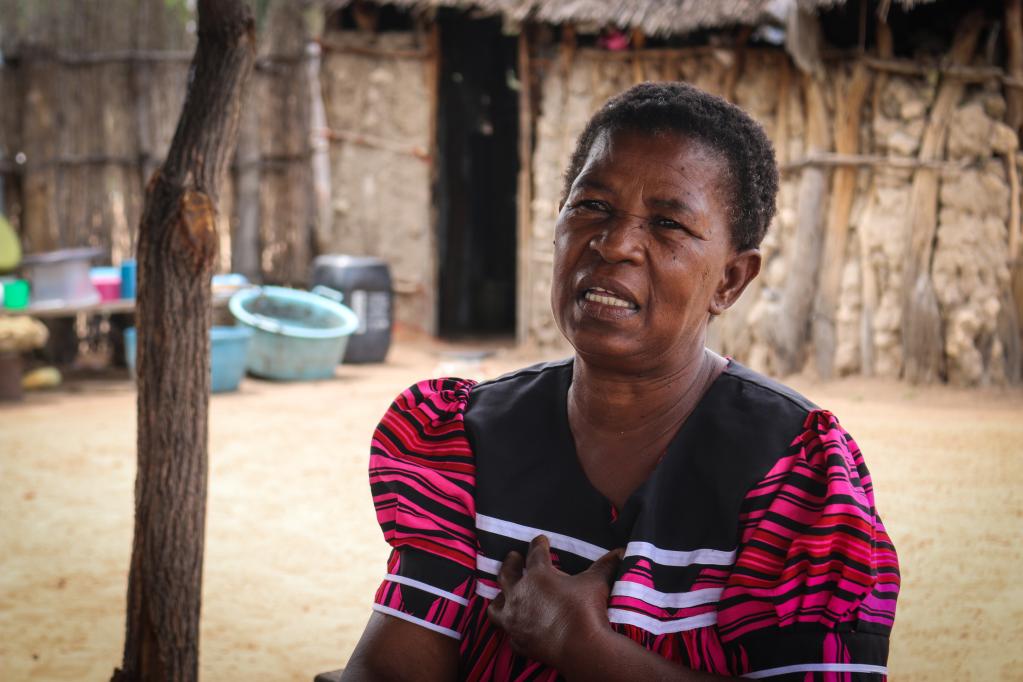
Press Release
29 April 2025
UN Namibia Mourns Loss of Young Girls and Reaffirms Commitment to Strengthening Child Protection
Violence against girls and humanity is unacceptable under any circumstances and must be addressed with the full force of the law. The UN calls for thorough, prompt, impartial and independent investigations to ensure accountability and prevent such acts from happening again. These acts of violence against children represent a profound violation of their fundamental rights and underscores the importance of continuing to strengthen protective measures for all children. As a signatory to the International Covenant on Civil and Political Rights, the Convention on the Rights of the Child and the Convention on the Elimination of All Forms of Discrimination Against Women, Namibia must uphold its obligations to prevent unlawful killings, protect the best interest of the child, including protection from all harm, prevent discrimination and gender-based violence, and hold perpetrators to account.The loss of any child is devastating as it tears at the very fabric of society. Every child has the fundamental right to live in safety, dignity and peace. Protecting these rights must remain a shared priority.“We are deeply saddened by the tragic deaths of 15-year old Beyoncé !Kharuxas, 5-year-old Ingrid Maasdorp, and 6-year-old Rosalind Dinelao Fabian, a national tragedy that must strengthen our resolve to protect all children,” said Ms. Hopolang Phororo, United Nations Resident Coordinator in Namibia. “The protection of our children must be a non-negotiable priority. We owe it to every child, every parent, and every future generation to act with courage and urgency. The UN in Namibia stands ready to support national efforts and encourages enhanced and coordinated action to prevent and respond to violence against children.”UN Namibia encourages an urgent and compassionate collective national response to ensure every child is supported and protected. Strengthening Namibia’s child protection systems is vital to ensure that services are adequately funded, easily accessible, and effectively responsive. This also includes enhancing access to justice for affected children and their families by expediting investigations and legal processes. Furthermore, increasing investment in violence prevention and psychosocial support, especially at the community level remains a key priority. Promoting education and awareness within communities is equally important, empowering all members of society to safeguard the wellbeing of every child. Violence against children must never be accepted as inevitable. This is also an opportunity for Government to implement recommendations received from various UN human rights treaties which focus on enhancing community support, male engagement, and awareness programs, while also building capacity among healthcare workers, police, judiciary, and civil society to tackle gender-based violence; addressing the root causes of child abandonment and ensuring children's rights to life, survival, and development; and the need for prompt, impartial investigations into violence against women, prosecuting and punishing perpetrators appropriately, and training police, prosecutors, and judges on gender-based violence issues.The UN Namibia stands in solidarity with the families of Beyoncé, Ingrid, and Rosalind during this time of profound grief. We call for a swift, coordinated and urgent national response that leaves no child behind. We reaffirm our commitment to the Government of the Republic of Namibia and all stakeholders to create safer environments for every child. Justice must be delivered swiftly and fairly, upholding the human rights and dignity of every victim.The UN remains committed to supporting Namibia’s efforts in advancing the Sustainable Development Goals (SDGs), particularly SDG 16: Peace, Justice, and Strong Institutions, and SDG 5: Gender Equality, and implementation with its human rights obligations. We recognize that ending violence against women and girls must begin with protection them from their earliest years.
1 of 5
Press Release
04 February 2025
UN SDG Book Club African Chapter Celebrates World Read Aloud Day with Global Read-a-thon
The Power of Reading AloudWorld Read Aloud Day, observed annually on February 5th, emphasizes the significance of reading aloud and sharing stories to foster literacy, empathy, and community building. This day holds particular importance in Africa, where access to reading materials can be limited, and literacy rates vary greatly across the continent.Empowering African ChildrenBy celebrating World Read Aloud Day, the UN SDG Book Club African Chapter aims to inspire a love for reading and storytelling centered around sustainability concerns among African children. Reading aloud has the power to bridge cultural divides, preserve heritage, and foster a sense of shared humanity.Partnering Schools Across the GlobeThe UN SDG Book Club African Chapter is delighted to partner with the following schools worldwide:1. Islamic Day Secondary School - Ibadan, Nigeria2. Banana Island International School - Lagos, Nigeria3. Nature-Nurtured Basic Academy Chukuku - Abuja, Nigeria4. Holy Family Languages School for Girls - Cairo, Egypt5. Saint Fatima Language School - Cairo, Egypt6. Chrisland Schools Group - Lagos, Abuja, Nigeria7. Beehive School - Lagos, Nigeria8. Mohammed El-Sheikh Preparatory School - Casablanca, Morocco9. Bal Bhavan Public School - East Delhi, India10. Mount Abu Public School - North West Delhi, India11. Maharaja Aggarsain Adarsh Public School - New Delhi, India12. Maharaja Agrasen Model School - New Delhi, IndiaSaluting Young AmbassadorsWe salute the participating children for their enthusiasm and dedication to reading and promoting the United Nations' Sustainable Development Goals (SDGs). These young ambassadors are helping to shape a brighter future for themselves and their communities.About the UN SDG Book Club African ChapterOur mission is to promote literacy, foster a love for reading, and inspire action towards achieving the United Nations' Sustainable Development Goals (SDGs) among African children ages 6-12. We also showcase Special Collections of selected books addressing sustainability themes for young adults and adults.Join the Celebration!Starting from 12 noon on Wednesday, February 5th, 2025, selected video highlights from the read-a-thon will be published on:- Ambassador Schools Program website: sdgafricaambassadorschools.com -YouTube channel: UN SDG Book Club African Chapter Follow us on social media for promotions:- Facebook: Borders Book Reviews and Nigeria Volunteers Network- Instagram: Borders_Book_Reviews- Twitter: @sdg_book_clubWe look forward to sharing the joy of reading with you!
1 of 5
Press Release
24 October 2024
UN Calls for Commitment to Agenda 2030 and beyond, as Namibia Prepares for the 2025-2029 UN Sustainable Development Cooperation Framework
Last month, the Pact for the Future was adopted at the United Nations General Assembly, providing a renewed vision for multilateralism aimed at addressing global challenges and delivering on promises for a better future.In Namibia, the United Nations is ushering in a new era of development cooperation with the launch of the 2025-2029 United Nations Sustainable Development Cooperation Framework (UNSDCF), which succeeds the 2019-2024 United Nations Partnership Framework (UNPAF). Reflecting on lessons learned from the previous framework, much progress was made in social transformation—such as in health, education, and gender-based violence—less was achieved in environmental governance, economic transformation, and governance outcomes. These areas, require a concerted push for greater impact under the new UNSDCF.Tackling inequality in an integrated manner and placing people at the centre of the work the UN does with an emphasis on young people is the overarching goal. This requires concrete actions to move beyond rhetoric and meaningfully engage young people in the implementation. Central to the 2025-2029 UNSDCF is a renewed focus on addressing persistent issues such as gender-based violence, rising teenage pregnancies, increasing unemployment, and the challenges of drought and floods. These issues, which continue to affect Namibia’s population, remain key priorities for the next phase of collaboration between the UN and Namibia.The UNSDCF 2025-2029 prioritizes four key areas:Effective Governance and Public Service Delivery: Strengthening governance frameworks, enhancing institutional capacities, and promoting transparency.Economic Recovery, Transformation, and Resilience: Supporting economic diversification, job creation, and SME growth for inclusive economic development.Sustainable Development and Green Growth Opportunities: Promoting sustainable natural resource management and strengthening climate resilience.Human Development and Community Resilience: Improving access to quality healthcare, education, and social protection services to ensure no one is left behind.These areas of focus are closely aligned with Namibia’s national priorities outlined in the forthcoming Sixth National Development Plan (NDP6) and the Vision 2030. In this new framework, young people and marginalized communities will remain central to all development efforts. The UN aims to create more inclusive opportunities for youth participation in the economy and decision-making processes, while ensuring that women, rural populations, and people with disabilities are not left behind.The UN, while not a financing institution, has provided critical technical expertise, evidence-based solutions, and pilot programmes supported by catalytic funds. The UNSDCF emphasizes the need for greater coordination among UN agencies, and strengthening partnerships with government bodies, civil society, the private sector, and International Financial Institutions (IFIs) to achieve more significant, sustainable results. Leveraging the comparative advantages of each partner and fostering collaboration rather than competition will be essential to driving progress.The Pact for the Future provides a global framework for supporting national priorities and acceleration towards the SDGs. The UNSDCF 2025-2029 underscores the UN’s commitment to supporting Namibia’s development objectives in the lead-up to 2030 and beyond.
1 of 5
Press Release
11 October 2024
UN and Government of Namibia Join Forces to Address Drought Crisis Amid El Niño
This initiative aims to deliver immediate assistance to vulnerable communities complementing other interventions to build long-term resilience. This funding decision by the United Nations CERF follows the visit of the Office of the ASG/Climate Crisis Coordinator for the El Niňo / La Niňa Response, Ms. Reena Ghelani, and the OCHA Regional Office in July 2024. The UN Resident Coordinator, Ms. Hopolang Phororo, and the ASG/Climate Crisis Coordinator for the El Niňo / La Niňa Response, Ms. Ghelani, advocated for UN support at regional and global level, as well as from development partners.
Namibia is currently facing one of its most severe droughts, influenced by the El Niño climate pattern, which has significantly impacted agriculture and food security across the nation. This crisis threatens the livelihoods of communities, particularly in the Omaheke, Kavango East, and Kavango West regions, which are classified as Integrated Food Security Phase Classification (IPC) 4, indicating an emergency in terms of food insecurity.
The United Nations, with the Government of Namibia, has mobilized US$3 million in response to this urgent need, leveraging the CERF. This funding, coordinated through the UN and OPM partnership, aims to complement the government’s Drought Response Plan to scale up lifesaving interventions to reach extremely vulnerable households in the most severely drought-affected locations in Kavango West, Kavango East, and Omaheke Regions.
The UN intervention will be implemented by the World Food Programme (WFP), United Nations Children’s Fund (UNICEF), and United Nations Population Fund (UNFPA) for six months. The total number of people directly targeted is approximately 163,000 across the following sectors: food assistance; nutrition; water, sanitation, and hygiene (WASH); and protection from gender-based violence.
The UN will oversee the implementation in collaboration with OPM, national, and local partners to ensure the effective distribution of food and services to those in most need. These efforts not only address the immediate crisis but also lays the foundation for long-term resilience, focusing on strengthening local supply chains, enhancing nutritional knowledge, and building community feedback mechanisms.
The integrated approach is designed to ensure accountability and transparency, with monitoring mechanisms established to protect the rights of affected communities and promote sustainable livelihoods.
Namibia is currently facing one of its most severe droughts, influenced by the El Niño climate pattern, which has significantly impacted agriculture and food security across the nation. This crisis threatens the livelihoods of communities, particularly in the Omaheke, Kavango East, and Kavango West regions, which are classified as Integrated Food Security Phase Classification (IPC) 4, indicating an emergency in terms of food insecurity.
The United Nations, with the Government of Namibia, has mobilized US$3 million in response to this urgent need, leveraging the CERF. This funding, coordinated through the UN and OPM partnership, aims to complement the government’s Drought Response Plan to scale up lifesaving interventions to reach extremely vulnerable households in the most severely drought-affected locations in Kavango West, Kavango East, and Omaheke Regions.
The UN intervention will be implemented by the World Food Programme (WFP), United Nations Children’s Fund (UNICEF), and United Nations Population Fund (UNFPA) for six months. The total number of people directly targeted is approximately 163,000 across the following sectors: food assistance; nutrition; water, sanitation, and hygiene (WASH); and protection from gender-based violence.
The UN will oversee the implementation in collaboration with OPM, national, and local partners to ensure the effective distribution of food and services to those in most need. These efforts not only address the immediate crisis but also lays the foundation for long-term resilience, focusing on strengthening local supply chains, enhancing nutritional knowledge, and building community feedback mechanisms.
The integrated approach is designed to ensure accountability and transparency, with monitoring mechanisms established to protect the rights of affected communities and promote sustainable livelihoods.
1 of 5
Press Release
25 November 2022
Labour Migration Governance Key to Protecting Migrant Workers in Southern Africa
The President of Zimbabwe, Dr Emmerson Mnagwanga will officially open the high-level conference which seeks to find ways to foster fair and effective labour migration governance and the protection of migrant workers in Southern Africa. Led by the International Labour Organization (ILO) and the International Organization for Migration (IOM), the High-Level Tripartite Dialogue is a culmination of activities and research organised by the Southern African Migration Management (SAMM) Project to identify priorities at the national level and advance in the implementation of country-level labour migration policies and action plans in the SADC region.
It is designed to improve migration management in the Southern African and Indian Ocean region guided by, and contributing to the realisation of, the 2030 Sustainable Development Agenda goal 8 on decent work and economic growth and goal 10 on reducing inequality and Objective 6 of the Global Compact for Migration (GCM) to Facilitate fair and ethical recruitment and safeguard conditions that ensure decent work.
Since almost half of all migrant workers in the SADC region are women, the conference will spotlight the importance of labour migration policies to be gender-responsive and evidence-based. For many women, as for men, migration can represent a positive experience and have important emancipating and empowering impacts.
According to the United Nations Department of Economic and Social Affairs (UNDESA, year ), the feminization of migration has reached significant levels in the Southern African region with 47 per cent of all migrants being female.
But often female migrants are confronted with gender specific disadvantages and vulnerability in the migration process and in their employment. Women workers, especially young female migrants, often end up in situations of double or even triple discrimination, disadvantage, marginalization and vulnerability (including violence and harassment as well as forced labour.
“Maximizing the benefits of labour migration and minimizing the risks and social costs requires sound and effective labour migration governance,” said Ms. Hopalong Phororo, ILO Director for ILO Country Office for Zimbabwe and Namibia. “Expert studies and data show that migration, particularly labour migration, is an important enabler and beneficiary of regional integration and economic development in Africa.”
Across the world, migration is largely linked to the search for a job and better wages, and even if employment is not the primary driver, it usually features in the migration process at some point. In Southern Africa, as in many parts of the world, migrants face prejudice, intolerance and stigmatization in their workplaces and communities.
“It is necessary to advocate for improved migration management in Southern Africa, as a pivotal approach to addressing the challenges of migration, and ensuring that migration has a positive outcome for the country, migrants, and the members of their families”, said Mr. Ashraf El Nour, IOM Regional Director for Southern Africa.
The Southern African region has had a long history of intra-regional migration. All Member States of the Southern Africa Development Community (SADC) are involved in labour migration flows as countries of origin, transit, or destination and often they play the three roles at the same time.
In the SADC region, migrant workers are present in agriculture, fishing, mining, construction, food processing, domestic work, caregiving, cleaning, restaurants-hotels, transportation and retail trade.
The two day conference will promote fair, ethical and effective labour migration governance through tripartism that brings Ministries of Labour/Employment, Home Affairs and Foreign Affairs, as well as workers’ and employers’ organisations and social dialogue particularly in the development of rights-based, gender-sensitive and evidence-based labour migration legislation and policies, taking account of labour market needs.
The conference will assess labour migration governance progress so far, gaps and challenges as well as main opportunities to consider in the SADC region. It will also identify tripartite constituents’ labour migration governance priority areas of collaboration, share existing and proposed good practices and recommendations and mention current roles and contributions. It will also provide a platform to tripartite partners to re-organise and re-strategize on labour migration governance in Southern Africa
About the SAMM Project
The SAMM Project is a United Nations Multi-Agency programme composed of the International Labour Organization (ILO), the International Organisation for Migration (IOM), the United Nations High Commissioner for Refugees (UNHCR) and the United Nations Office on Drugs and Crime (UNODC). The European Union is supporting and funding the implementation of the project.
1 of 5
Latest Resources
1 / 11
1 / 11





















